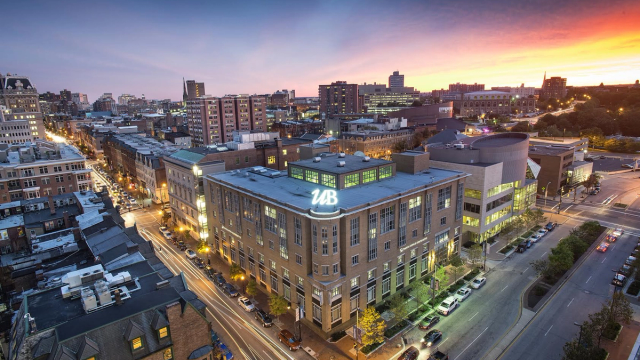Getting Started with SDG Implementation in Baltimore, USA
By Sandra Ruckstuhl, PhD
It has been only five months since the UN General Assembly convened and ratified the new Sustainable Development Goals – and Baltimore is already pushing forward to localize this global agenda, proving it can be a model for cities around the world who want to build locally-grounded strategies to tackle sustainable development needs.
In September 2015 SDSN established a partnership with the University of Baltimore (see press release here) to advance the sustainable development agenda throughout the city. The city is facing an interesting crossroad for sustainable development – the mayoral election season is underway, and this implies an opportunity to elevate new policy discussions, including on topics related to the 17 SDGs. Inspired by the outcome of the September 2015 UN Sustainable Development Summit, the University of Baltimore has determined this a unique time to convene a series of discussions on the city’s sustainable development strategies.
In October, a core team of local experts from the University of Baltimore’s College of Public Affairs (Dr. Ivan Sascha Sheehan) and Merrick School of Business (Dr. Seema Iyer), University of Maryland’s National Center for Smart Growth (Dr. Gerrit Knaap), and an NGO named Communities Without Boundaries International (Mr. Johnny Mack) were supported by SDSN to come together and brainstorm how to put this idea into action. They determined that for discussions on sustainable development in Baltimore to meet their maximum potential they needed to be built on a stocktaking of current city strategies. To jumpstart this process, Kendal Stewart, a research assistant from SDSN, with guidance from Dr. Iyer, reviewed a series of sector strategiesand mapped existing targets named in those documents against the framework of the 17 SDGs.
In order to engage stakeholders from across the city, the core team formed the “ SDG Executive Team” for Baltimore(SDGET), which consists of key technical specialists from city agencies, civil society organizations and non-profits, and academic institutions. The SDGET convened for the first time on December 3, 2015 to discuss and provide feedback on the preliminary results of the stocktaking, and to agree on a next phase of discussions on sustainable development targets and data monitoring solutions (click for the meeting agendaand a PowerPoint presentation of the stocktaking results). Thinking big while also acknowledging the complexity of this work, the 18 members in attendance discussed the importance of building on previous initiatives and strategizing from the start on how to reach any new or previously established long-term targets.
In 2016 SDGET will convene a series of events and working group meetings in which a range of experts on local social, environmental and economic development issues will work together to build out a list of proposed, feasible, quantifiable sustainable development targets that can be considered for incorporation into future city strategies – such as the Sustainability Action Plan that will be revised in 2016 or the Comprehensive Master Plan that will be launched in 2017. To begin this consultative process, two meetings will be held in early March. On March 3, 2016, Communities Without Boundaries International will convene a meeting to educate community members on the SDGs and the Sustainable Cities Initiative in Baltimore to prepare them to participate and represent their constituencies in working meetings that will follow. Then on March 4 at the University of Baltimore the SDGET will host the first Sustainable Cities Initiative Working Group Discussion, during which participants will review a stocktaking of the city’s plans and will discuss development targets for 2030 and quantitative indicators to track progress toward those goals. For more information about these events and about participating in the Baltimore initiative please email [email protected] with the subject line “Baltimore”. After each event, proceedings and other resources will be posted at http://www.ubalt.edu/about-ub/sustainable-cities.
The University of Baltimore has also announced that sustainable development will be the theme for this year’s Baltimore Data Days, which will be held on July 21-22, 2016. Baltimore Data Days will bring together citizens of Baltimore, working group experts and the SDGET to discuss data solutions for monitoring progress toward the city’s development targets. Stay tuned for more information as the work continues…
Photo Credit: Howard Korn Photography
